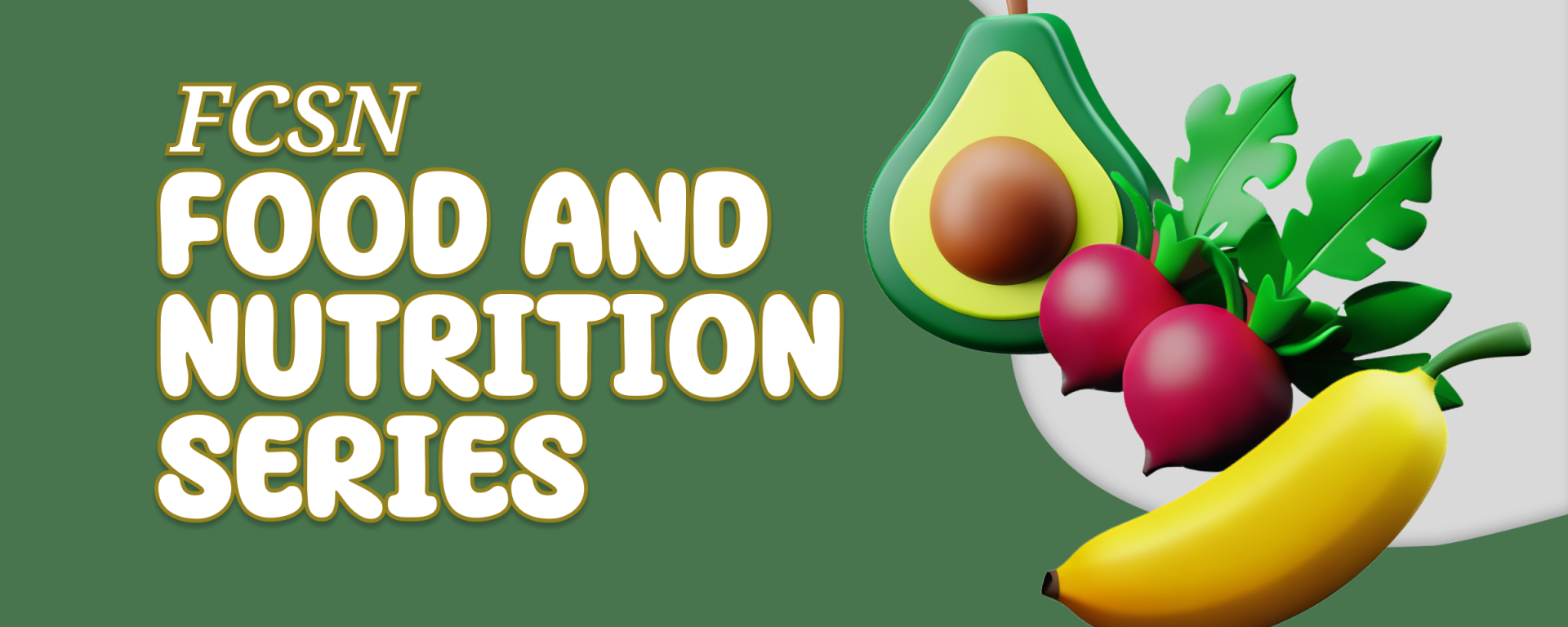Written by: Rachel Lee, FCSN Voices Senior Youth Reporter
Graphics by: Anna Wang, FCSN Voices Senior Graphic Artist
On a Monday afternoon, a warm buzz of excitement can be heard at FCSN’s Chenming & Margaret Hu Center as students gather for their weekly cooking class — a cherished highlight of FCSN’s After-School Program. Led by several dedicated staff members, the session begins with a review of the class rules before delving into the day’s delicious task: crafting turkey and cheese sliders. Staff and youth volunteers gently assist in students cutting turkey slices while the lead instructor directs an engaging Q&A session, allowing FCSN’s budding chefs to not only learn the art of preparing simple meals, but also gain a deeper understanding of the ingredients that make up their creations.
Since its establishment in 2014, FCSN’s cooking program has served as a gateway to practical skills and culinary exploration for its eager participants. The program aims to teach basic, practical cooking skills that students can carry with them throughout their lives. Most of the dishes taught are American dishes due to their simplicity, but the instructors occasionally introduce cultural delicacies such as spam musubi and fried rice to inspire students to explore new flavors. Sometimes, the dishes are even based on the season or holiday; for instance, students who attended the fall semester cooking class learned how to cook using fall crops.
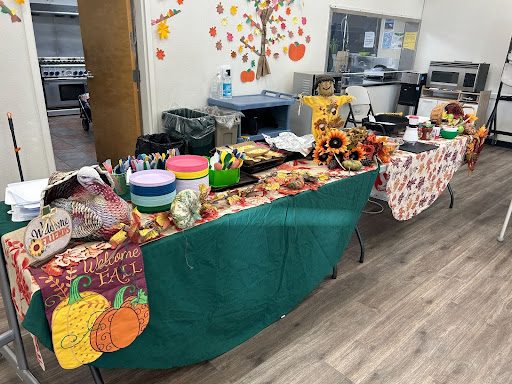
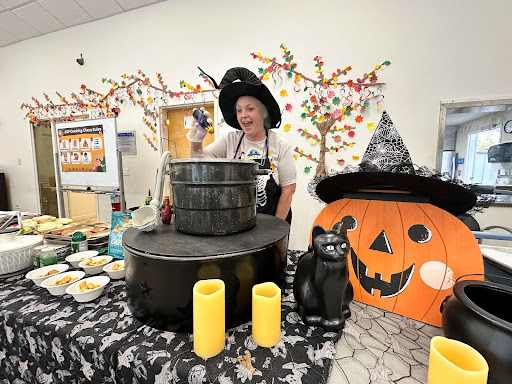
FCSN’s cooking program utilizes a well-organized curriculum with specific learning objectives for every dish taught. For example, students learned how to use a stove safely and wash vegetables properly when making mini pizzas with salad. They are also introduced to the different types of kitchen tools and learn terms such as “dice” and “chop.” Additionally, the program teaches plenty of life skills — instructors encourage each individual to help pass out supplies, set the table properly, clean up, and wash the dishes. Moreover, basic nutrition is integrated into the curriculum to emphasize the importance of cooking, using simple concepts such as which health benefits are associated with the different colors of food.
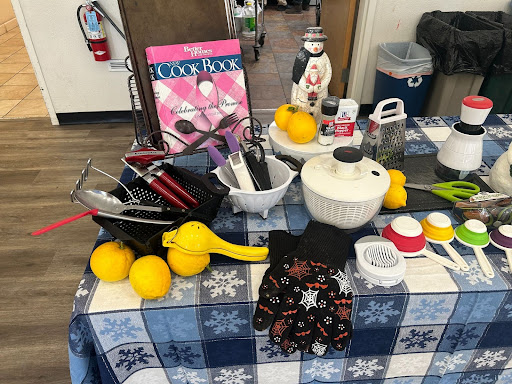
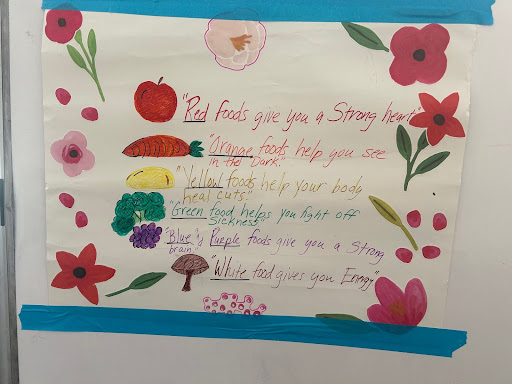
While occasional dessert-making sessions are included in the program, the main focus is on teaching how to prepare proper meals so that students become more independent. Through hands-on experiences, students enhance their focus, listening, and sensory abilities while gaining exposure to unique kitchen tools such as a salad spinner. The program also encourages collaborative efforts, with opportunities for students to work together on one large dish, each assigned a specific task such as stirring or seasoning. Other times, students refine their own cooking skills by working independently under the guidance of a staff member or youth volunteer. Because some students have shorter attention spans and require something to fidget with, they accommodate this while engaging them in food preparation. At the end of the session, the instructors encourage students to sample the food but respect any dietary restrictions they may have, emphasizing the experiential aspect of food preparation.
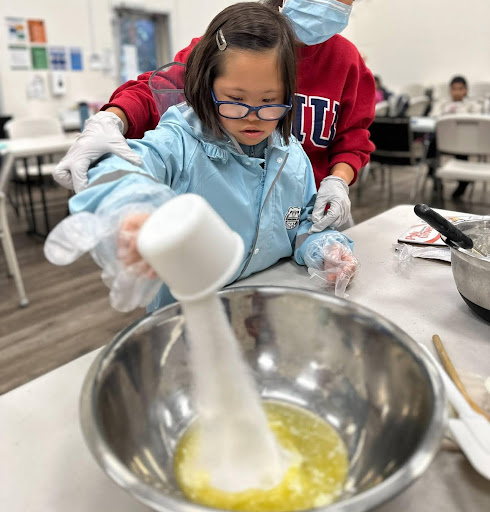
Ms. Michelle, an FCSN staff member for 11 years and a lead instructor of the cooking program, has witnessed the program expand its curriculum and structure while maintaining its core mission. “We just want to give everyone good experiences,” she says. “It’s nice to know [students] can take care of themselves in the future.” She has seen past students mature into successful adults after taking their first steps towards independence through FCSN’s programs. Among them is her own son, who has been employed for nine years and is able to prepare basic foods, commute to and from work, and manage his daily life. “It makes him feel good about himself that he’s contributing,” she says. “He has some of his own money now. He’s not treated any [differently] at his job.” As current students continually grow and progress towards independence, Ms. Michelle reflects on life’s unpredictable journeys. “You never know where your life can take you.”
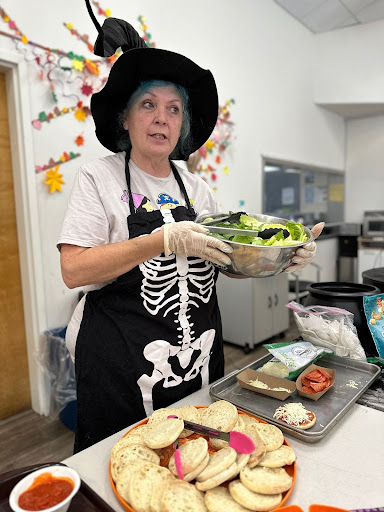
Elaborating on the goal of the program, Ms. Michelle says, “[Cooking] is a skill; it’s never ending that you’ll need this skill in the world. [But] it goes beyond cooking [also]; it touches every aspect of your life to be able to use vocabulary words, and…it opens your mind to different…smells and flavors and understandings.” With its commitment to fostering independence and life skills, FCSN’s cooking program is more than just a recipe for food — it’s a recipe for self-growth, both in the kitchen and beyond.

